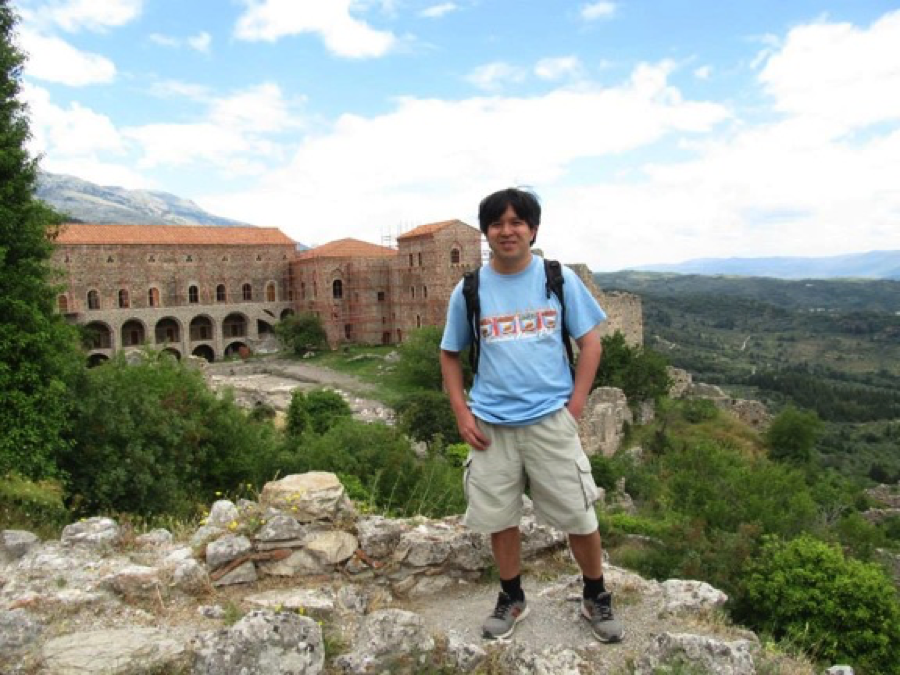Past Recipients
2015–2016
James Morton, University of California, Berkeley
Project: Byzantine Canon Law in the Roman Church: Nomocanonical Collections as Sources for the Greek Church in Southern Italy (11th–13th Centuries)
Thanks to the generous funding of the Mary Jaharis Center, I was able to travel to Rome in September 2015 in order to carry out a preliminary study of the primary sources that now form the core of my dissertation research. My work focuses on a largely unknown body of sources for medieval legal culture: manuscripts of Greek church law (known as ‘nomocanons’) that were copied between the tenth and fourteenth centuries in the South of Italy. Although they are essentially products of the Byzantine legal tradition, they were created and used by a Greek Christian population that underwent significant cultural change as the Byzantine Empire lost control over Southern Italy to Latin-speaking, Western Christian powers: first the Normans, then the Swabians, Angevins and Aragonese. As a result, the Southern Italian nomocanons offer a fascinating insight into religious legal culture in a pluralistic medieval state.
The manuscripts concerned are largely located in Italian collections (especially in the Vatican Library) and are not readily available in reproduction: out of approximately forty that I have identified, only two exist in microfilm reproduction in the United States. My visit to the Vatican Library and also the nearby Biblioteca Vallicelliana in central Rome was thus of immense help in allowing me to familiarise myself with the style and composition of the manuscripts, and contributed greatly to the refinement of my dissertation research aims and methodology. I am very grateful to the Mary Jaharis Center for affording me the opportunity to do so.
Kyle Shimoda, Ohio State University
Project: The “Keys” of the Latinokratia: Castles and Fortifications in the Latin Aegean, 1204–1669

After receiving the Mary Jaharis Center Dissertation Development Grant, I elected to use the money to help fund three months’ worth of research on crusader architecture in Greece. During these three months, I resided in Athens as a visiting member of the American School of Classical Studies in Athens. While there, I devoted much time to using the extensive library facilities at the Gennadius and Blegen Libraries of the American School. While not in the libraries, I also took the time to visit the many museums in Athens, particularly the Byzantine and Benaki Museums, in order to further my understanding and appreciation of Medieval Greek history and culture.
However, the primary purpose of my visit to Greece was to have the chance to examine crusader architecture in the Peloponnese, and during my time there I managed to visit a large number of castles and churches from the Byzantine, crusader, and Venetian periods in Greece. Among the most important sites I visited were the castles of Acrocorinth, Chlemoutsi, Kalamata, Karytaina, Monemvasia, Mystras, and Nafplio. While there, I carefully examined as much of these sites as was accessible to me, taking many photographs and recording notes on the architectural features and plans of the castles.